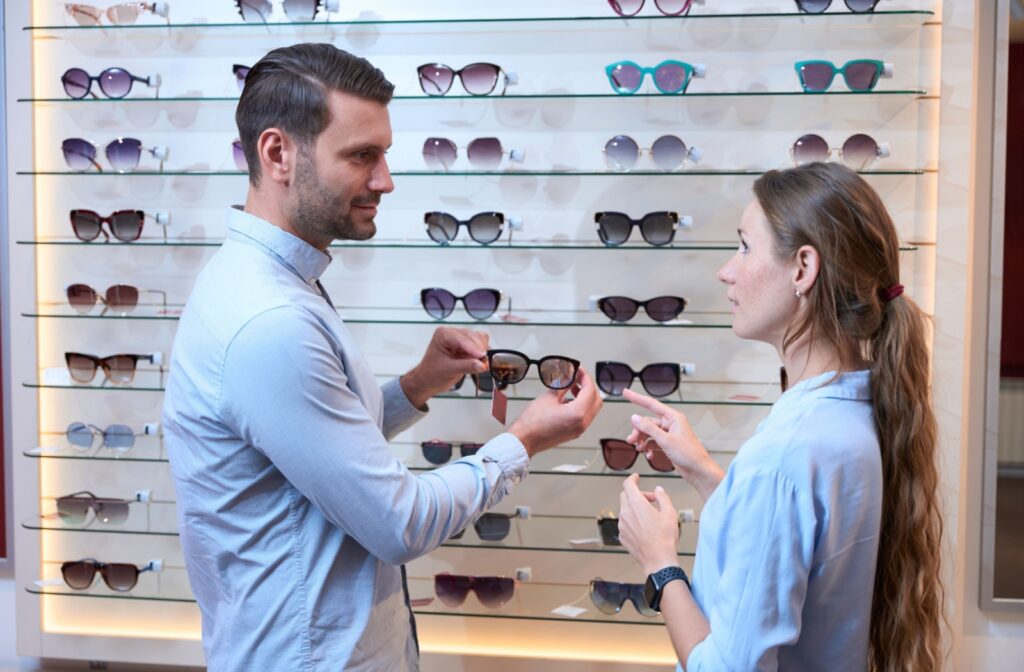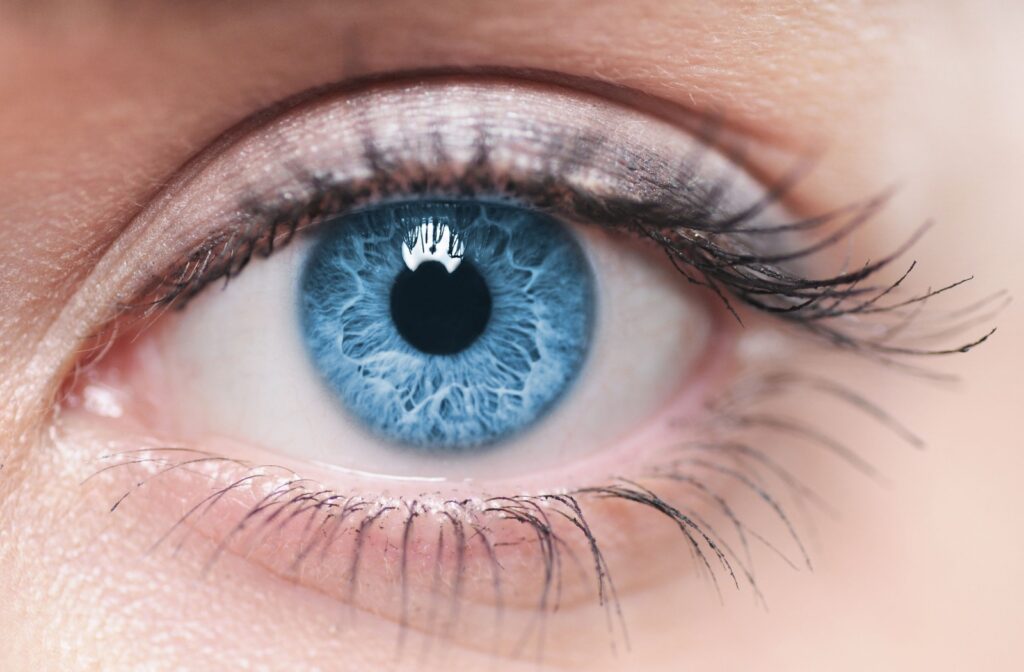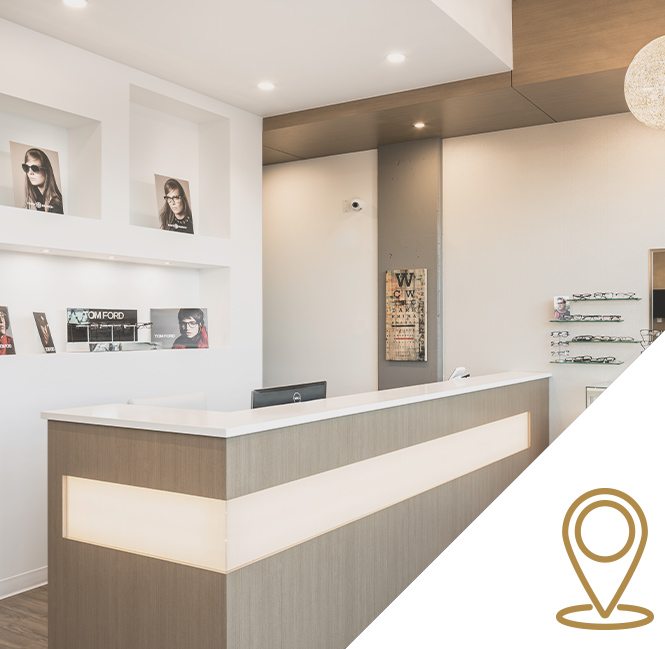If you have blue eyes and often find yourself squinting in the bright sunlight or reaching for sunglasses more than others, you may be wondering if your eyes are more sensitive to the sun. The short answer is yes, blue eyes tend to be more sensitive to sunlight. This is due to the lower amount of melanin in the iris, which provides less natural protection against UV rays.
In this blog, we’ll explore why blue eyes are more sensitive to light, how sunlight can affect your eyes, and the steps you can take to protect your vision while enjoying the outdoors.
Why Are Blue Eyes Sensitive to Sunlight?
The sensitivity of blue eyes to sunlight can be explained by the amount of melanin in the iris. Melanin is the pigment responsible for the colour of your eyes, skin, and hair. It acts as a natural filter, protecting the eyes by absorbing and dispersing UV rays.
People with blue eyes have less melanin in their irises compared to those with darker eyes, meaning they have less natural protection from bright sunlight. To put it simply, blue eyes are like wearing lightly tinted sunglasses—while they provide some shielding, they don’t block as much light as darker eyes do.
If you have blue eyes, you may notice that you’re more likely to experience discomfort when exposed to bright sunlight, such as squinting, eye fatigue, or even headaches. Fortunately, this sensitivity can be managed with a few simple precautions.
Are Other Eye Colours Equally Sensitive to Sunlight?
While blue eyes are more sensitive to sunlight, they’re not the only eye colour that can experience light sensitivity. Green and hazel eyes, which also contain less melanin than brown eyes, are moderately sensitive to sunlight as well.
On the other hand, people with brown eyes have a higher melanin content, providing them with better natural protection from UV rays. However, this doesn’t mean brown-eyed individuals are immune to the risks of sun exposure. Everyone, regardless of eye colour, should take steps to protect their eyes from the sun’s harmful UV rays, especially in environments with intense sunlight or high altitudes.
How Sunlight Damages Our Eyes
While sunlight is essential for our overall health, excessive UV exposure can cause damage to the eyes over time. Here are a few conditions that can be linked to prolonged sun exposure:
- Photokeratitis: This is essentially a sunburn of the eye, often caused by intense UV exposure. Symptoms include redness, pain, sensitivity to light, and a gritty feeling in the eyes.
- Cataracts: Prolonged exposure to UV rays can increase the risk of cataracts, a condition in which the lens of the eye becomes cloudy, impairing vision.
- Macular degeneration: UV rays can contribute to macular degeneration, a leading cause of vision loss, which affects the central part of the retina.
- Pterygium: Commonly known as “surfer’s eye,” this growth on the conjunctiva is associated with excessive UV exposure and can cause discomfort and affect vision.
While blue eyes may be more vulnerable to these conditions due to their reduced melanin levels, all eye colours are susceptible to the risks of UV radiation without proper protection.

How to Protect Your Eyes from Sun Damage
The good news is that protecting your eyes from the sun is simple, and the right precautions can make a big difference in preserving your long-term eye health.
Invest in UV-Protective Sunglasses
One of the most effective ways to protect your eyes from the sun’s harmful rays is by wearing sunglasses with UV protection. When shopping for sunglasses, be sure to look for the following features:
- UV protection: Ensure the sunglasses block 100% of both UVA and UVB rays. The label “UV400” indicates top-level protection.
- Polarized lenses: Polarized lenses reduce glare, making them especially useful for outdoor activities like driving, hiking, or being near water.
- Wraparound design: Sunglasses that cover the sides of your eyes offer additional protection by blocking UV rays from entering from the sides.
Sunglasses are more than just a fashion accessory; they are essential for protecting your eyes from harmful sunlight. Pair them with a wide-brimmed hat for extra sun protection.
Smart Habits for Protecting Your Eyes
Here are some additional ways you can protect your eyes from sun damage:
- Avoid prolonged sun exposure: Limit the amount of time you spend outdoors during peak sunlight hours, typically between 10 AM and 4 PM, when UV radiation is at its strongest.
- Never look directly at the sun: Staring at the sun can cause permanent damage to the retina. Even brief exposure can have serious consequences.
- Use UV-blocking contact lenses: If you wear contact lenses, ask your optometrist about lenses that provide built-in UV protection. These lenses can complement your sunglasses and help protect your eyes from UV exposure.
- Practice eye hygiene: Staying hydrated and using lubricating eye drops can help reduce dryness and irritation, which may worsen in the sun.
By adopting these habits, you can reduce the risk of eye damage from UV exposure and enjoy outdoor activities with greater comfort. It’s especially important to take these precautions if you live in an area with intense sunlight or high altitudes.
Take Care of Your Eyes Today
While blue eyes may be more sensitive to the sun, it doesn’t mean you need to avoid the outdoors. With the right precautions and protective habits, you can enjoy sunny days safely while maintaining healthy eyes.
At Willoughby Doctors of Optometry, we can help you select the best sunglasses for your needs and offer additional advice on how to protect your eyes from harmful UV radiation. If you have concerns about your eye health or need a checkup, our friendly team is here to assist you. Schedule an appointment today and take the first step towards protecting your vision.











